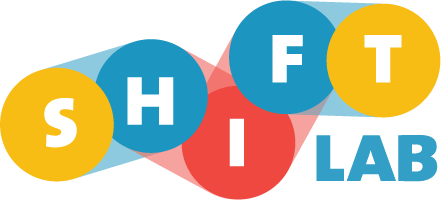Introducing the Core Lab team: Sheida Azimi
Curious about the folks who are participating in the Shift Lab? Wonder no more! Over the next three weeks, we will feature each of the Core lab team members (12 in all) as they tell us their thoughts about social innovation, racism and poverty in Edmonton, and why they joined the Shift Lab. Yesterday, we met Vivian. Today, meet Sheida Azimi. You can also check out Sheida's bio here.
My name is Sheida Azimi. I was born and raised in Tehran, Iran. During my young and innocent years of studying economics for my Bachelor’s degree, I became extremely interested in public and social policy. This led me to move to Berlin, to pursue my master’s degree in public policy.
During my graduate studies, I touched upon several social policy related issues and became extremely interested in social innovation and entrepreneurship. I also learned about hipsterism, clubbing, techno music and benefits of having access to high quality cheap beer. I got further engaged in social innovation, while working on my master’s thesis on microfinance and women’s empowerment in the Middle East, a subject closer to home.
Growing up in Iran, I witnessed a lot of systematic racism against Afghani refugees. Their perceived inferiority in Iranian society always made me furious and acted as a constant reminder of my own privileges. In Berlin as an Iranian woman, I personally experienced a different, more subtle form of racism. All these experiences made me think a lot about the dynamics of power between the majority and racialized group and the role of power re-distribution in creating inclusive community. However, such problems are complex and cannot be solved with one simple solution no matter how hard we all wish for it. So, when I learned about Shift Lab by accident this past summer, I attended their launch party. Their approach towards complexity and ambiguity got me very interested. I had to admit though that the amazing food and cupcakes also played a huge role.
In my opinion when working with complexity and ambiguity, being adaptive and flexible is the key step. It is important to allow for interactions and relationships to occur so information can be shared, and to keep in mind that results are emergent rather than predetermined. After talking to the Stewardship team and meeting with other interested people, I sensed that the lab is a safe and supportive environment that allows this to happen. I couldn’t be more proud and excited when I was asked to be a part of the team.
